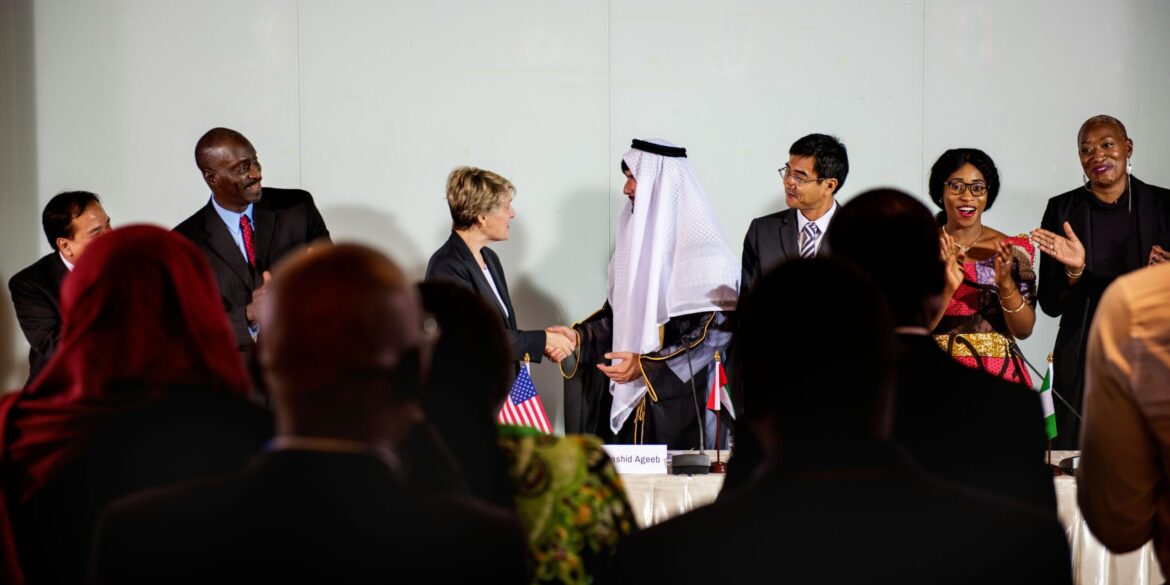As leaders from the world’s seven major industrialized nations meet in Canada for the annual G7 summit, the already strained relationships between the United States and its allies have reached a boiling point. President Donald Trump’s confrontational stance on trade and his “America First” policies are deepening rifts with longstanding allies, casting uncertainty over future international relations.
U.S. Tensions with Canada and Europe Escalate
The G7 summit, taking place in the picturesque town of Charlevoix, Quebec, has already been marked by pointed remarks and sharp disagreements between the U.S. and its closest allies, especially Canada and European nations. With Trump’s tariffs on steel and aluminum imports and his withdrawal from the Paris Climate Agreement still fresh in global minds, the mood at the summit is notably tense.
French President Emmanuel Macron, who has been a vocal critic of Trump’s foreign policy, warned that the U.S. could no longer be counted on as a reliable ally. “We must have a clear and direct relationship with the United States, but also without naivety. We are ready to work together, but we will defend our interests,” Macron said during a pre-summit press conference.
Trump’s ‘America First’ Agenda Divides the Room
The most contentious topic at the summit so far has been Trump’s aggressive trade stance, which has seen him impose tariffs on aluminum and steel imports from Canada, the European Union, and Mexico. These tariffs, part of Trump’s larger “America First” agenda, have left many of the world’s most powerful economies questioning the U.S.’s commitment to multilateral agreements.
Despite efforts by other G7 leaders to stress the importance of free trade and the benefits of international cooperation, Trump has remained firm, accusing the U.S.’s allies of unfair trade practices and promising to “put America first” at every turn.
“We’re being taken advantage of on trade, and it’s time to stop,” Trump said upon arriving in Canada. “We’ll no longer allow the U.S. to be the piggy bank of the world.”
Canada in the Crosshairs: Trudeau Responds
The G7 host, Canadian Prime Minister Justin Trudeau, has borne the brunt of Trump’s trade rhetoric. In response to U.S. tariffs on Canadian steel and aluminum, Trudeau announced retaliatory tariffs on American goods, including orange juice, ketchup, and whiskey, which sparked further tensions.
“We will stand up for our Canadian workers and industries, and we will not back down in the face of unjust tariffs,” Trudeau said in a statement earlier this week.
However, Trudeau’s diplomatic approach has done little to soothe Trump, who has consistently criticized Canada’s trade policies, particularly regarding dairy imports, which he claims harm U.S. farmers.
European Leaders Urge Cooperation Amid Growing Rift
Leaders from Germany, Italy, and the United Kingdom have also expressed their concerns about the growing divide between the U.S. and its European allies. German Chancellor Angela Merkel called for “constructive dialogue” but echoed Macron’s sentiment that the U.S. under Trump could no longer be trusted to uphold long-standing agreements.
“We have to be prepared for a world in which the U.S. no longer automatically plays the role of a close ally,” Merkel said, underlining the need for Europe to strengthen its own independent foreign policy strategy.
British Prime Minister Theresa May, meanwhile, warned that the erosion of transatlantic relationships could have dangerous global consequences, particularly in dealing with common security threats such as terrorism and nuclear proliferation.
Divisions Continue Over Climate and Iran Deal
Beyond trade, the summit has highlighted other deep divisions between Trump and his G7 counterparts. Trump’s decision to withdraw the U.S. from the Paris Climate Agreement last year was a point of contention, with many leaders accusing the president of failing to acknowledge the urgency of global climate change.
Macron and Trudeau have vowed to push forward on the climate front, with or without U.S. support. “Climate change is one of the greatest challenges of our time, and we will continue to work with our global partners to combat it,” Trudeau affirmed.
The Joint Comprehensive Plan of Action (JCPA), better known as the Iran nuclear deal, has also caused friction between Trump and European leaders. While Trump withdrew the U.S. from the 2015 deal last month, other G7 leaders have reaffirmed their commitment to it, with Germany’s Merkel stressing that the deal remains a key pillar in preventing nuclear proliferation.
Tensions Reach a Breaking Point: What’s Next?
As the summit continues, it’s clear that the divisions between the U.S. and its G7 allies are unlikely to be bridged in the short term. The fallout from Trump’s trade policies, his stance on climate change, and his approach to international diplomacy have left many wondering what the future holds for the once-solid relationships between the U.S. and its closest allies.
As the summit wraps up, Trump is expected to head to Singapore for his highly anticipated summit with North Korean leader Kim Jong-un. There, he will face another test of international diplomacy, one that could further define the future of U.S. foreign policy under his leadership.
For now, the world waits to see whether the U.S. will return to its traditional role as a global leader, or if Trump’s “America First” policies will continue to isolate the country from the international community.


